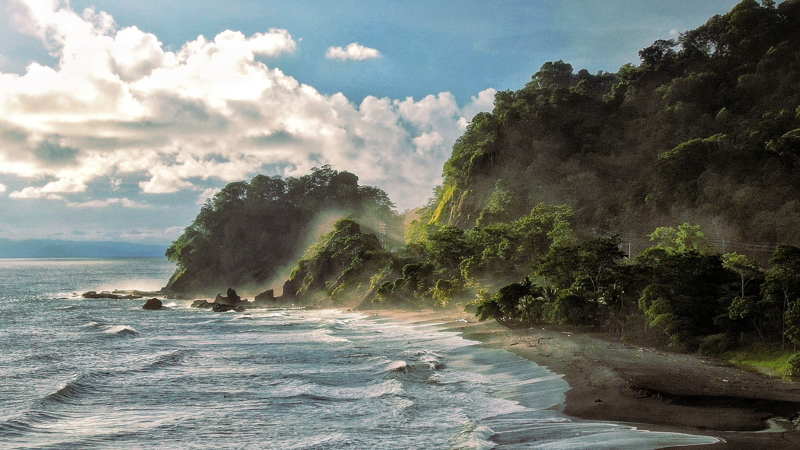Dominical, Costa Rica: Everything You Need To Know
A few decades ago, Dominical was a small fishing village, but has since grown into a popular tourist town, particularly with surfers who come from all over the world to ride the epic waves here.
Costa Rica is one of the most laidback countries you can visit. The lifestyle here revolves around the spectacular countryside. There are pristine white-sand beaches and tropical jungles, full of birds, plants, and other wildlife.
Most expats choose to base themselves either in the mountainous coffee regions or by the beach.
It’s not hard to see why Costa Rica is a popular destination for retirees.
Dominical is a gateway to the Costa Ballena—a whale-shaped coastline that nature lovers delight in for spotting humpback whales, dolphins, and turtles.
Here, you can live an active, sunshine-filled life, combined with a relatively affordable cost of living and all of the perks of a thriving economy and a democratic government.
Located in the province of Puntarenas on Costa Rica’s South Pacific coast, Dominical is approximately 125 miles from the capital of San José (about three-and-a-half hours by car).
Expats are drawn here too—for its laidback lifestyle and natural beauty. Besides surfing, horse-riding, yoga, and snorkeling are also popular pursuits here.
The town has a variety of bars and restaurants where you can enjoy international cuisine and live music.
Living in Dominical, you’ll have the benefits of living a healthy, low-cost lifestyle surrounded by nature and wildlife, stunning beaches, and dense jungle mountains.
Expat Community In Dominical, Costa Rica
Costa Rica has a long history with American expats. There are well-established expat communities to connect with and plenty of English speakers here. In saying that, we always recommend learning a little bit of the local lingo, as you won’t experience full immersion into the country without being able to chat with the locals.
Costa Ricans are extremely friendly and welcoming, with a laid-back attitude to life.
In Dominical, expats meet up for various events most weeks and go out of their way to welcome new arrivals.
There’s a small population and tight-knit, established expat community.
Cost Of Living In Dominical, Costa Rica
The cost of living in Dominical is comparatively low to other parts of Costa Rica.
You can save on your monthly costs by shopping for organic produce at local markets and using a fan instead of air conditioning at home. If you’re eating out, restaurants are good value and serve top-class cuisine.
Let’s take a closer look at the cost of living in Dominical, Costa Rica.
Things To Do In Dominical, Costa Rica
Dominical is a paradise for nature lovers and those who enjoy the great outdoors.
The beach at Dominical has some of the best waves in Central America, so if you’re a surfer you’ll be in heaven. If you’d like to take up the sport, you’re in the right place, too.
Surf lessons are available at Playa Dominical and cater to all levels, including beginners. Also, the best time to spot humpback whales in Dominical is from July to August.
If shopping is your thing, there’s a market right on the beach, where you can pick up beautiful colorful textiles, jewellery, and trinkets.
The must-see Nauyaca Falls are a 15-minute drive from Dominical. There are actually two falls here. You can hike to the upper falls (about four hours round-trip) and swim in the pools of the lower falls.
For some of the best river rafting in Costa Rica, head to nearby Savegue River. Suitable for beginners, it’s a great day out with some fun rapids to boot.
For a more zen activity, you can take a yoga class on the beach.
There are some incredible beaches in the area and expats like to spend the day beach hopping and exploring. You can ride horseback on the beaches and the snorkelling is out of this world.
Safety In Dominical, Costa Rica
Dominical is a relatively safe town, especially if you live in a gated community. As with anywhere in the world, petty crime exists so use your common sense.
For instance, use a safe if you have one in your house, don’t leave valuables visible in your car, and don’t walk around with wads of cash and expensive jewellery or equipment.
Health Care In Dominical, Costa Rica
Costa Rica boasts one of the most advanced health care systems in Latin America. Offering universal health care to all citizens and permanent residents, expats have a choice between public and private health care.
The public health care system is run by the Caja Costarricense de Seguro Social, commonly referred to as the Caja. Fifteen public hospitals operate under the Caja, offering citizens and permanent residents excellent health care across the country.
Smaller clinics where check-ups and minor medical examinations take place can be found in all the country’s towns.
The private health care system is constantly upgrading, with state-of-the-art facilities and experts available in every field. Expats often opt for the private system as insurance is relatively cheap and most doctors speak English.
Costa Rica is quickly becoming a popular medical tourism destination because of its high standards and comparatively low costs for care. Costa Rica also excels in private dental treatments.
The health care facilities in Dominical are limited. There’s a private clinic in town, but for emergencies or any ailment of a more serious nature, expats travel to San José, the country’s capital, where there are a range of hospitals and medical centers to choose from.
Visa And Residency Information For Dominical, Costa Rica
There are four main types of residency options for expats in Costa Rica—the Pensionado Visa, a Rentista Visa, an Investment Visa, and a Work Visa.
Pensionado Program in Costa Rica
After working so hard to woo American and European retirees, Costa Rica seemed to change its mind. The Costa Ricans didn’t drop their famous pensionado program, but they did eliminate most of the tax breaks it had promised, as part of a deficit-reduction austerity package. And they didn’t grandfather existing pensionados.
Those who chose Costa Rica for the retiree benefits it offered felt surprised and disappointed to find that those benefits didn’t exist anymore.
Up until 1992, Costa Rica offered two major benefits for those who attained the pensionado status.
Firstly, the right to import a vehicle every five years free of import duties, which can cost up to 89% of the total of the vehicle.
Secondly, a one-time pardoning of import tariffs up to $1,000 in household goods.
Also, the average application only took a few months to complete, in stark comparison to the 12- to 18-month period it averages now.
The process is far from convenient, but still, what keeps drawing retirees here is mostly a lower cost of living, that lets pensioners rely on their monthly payments in order to live comfortably.
As an applicant, you must demonstrate income from a qualified pension of at least $1,000 a month.
The visa is valid for two years. After that, you can renew as long as you can prove that the pension is still $1,000 a month (or more), that it has been received in Costa Rica, and that you have lived in the country at least four months of the year.
As a pensionado, you can establish a business or work on your own, but you can’t be an employee in the country.
The Rentista Visa Program in Costa Rica
This program is currently aimed at expats who are not of retirement age. You don’t have to work in Costa Rica, but you have to prove a guaranteed $2,500 a month from savings, investments, or other sources for at least two years.
To prove this, you’ll need to get a notarized letter from a bank or other financial institution indicating you have at least $60,000, in a CD for example.
You have to agree in this letter that you will withdraw $2,500 to a Costa Rican bank account per month during this two-year period—($60,000 USD = $2,500 x 24 months). This amount stays the same for the case of a married couple.
This type of visa is temporary, but you can apply for permanent residency after being temporary for at least three years.
This visa doesn’t come with a work permit, as the law states you have to be a permanent resident in order to acquire one. That means you can’t work for a three-year period.
Inversionista Visa Program In Costa Rica
To apply for this visa, you’ll need to make an investment in Costa Rica of at least $200,000.
It doesn’t matter what type of investment you make, whether it’s in business or real estate, as long as it’s in Costa Rica.
This type of visa won’t give you a work permit either as you won’t have permanent residency. You would have to go through the same three years of temporal residency in order to upgrade. There are additional requirements that are subject to change, so be always informed.
We highly recommend you investigate the necessary paperwork you’ll need when looking for a visa in Costa Rica.
It is important to acquire all necessary documents before you leave home, as working them out from abroad proves costly in money and time.
The pensionado residency normally asks for the following documents:
Most documents must have an apostille—a stamp that certifies your document is valid on an international level. You can apply for this stamp at your State Department at home.
All other types of residencies share similar requirements. Either way, it would be wise to go directly to the source to know exactly what you’ll need.
Weather In Dominical, Costa Rica
As you might expect, Dominical has a tropical climate. Temperatures throughout the year don’t vary much—averaging around 77ºF. Humidity levels can be as high as 90% during the rainy season (May to October).
The dry season (February to April) sees the humidity drop to about 75%.
Read more: Climate In Costa Rica






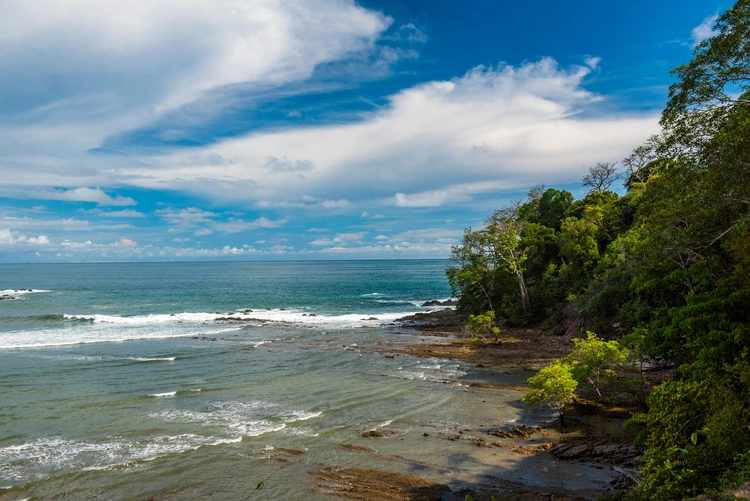

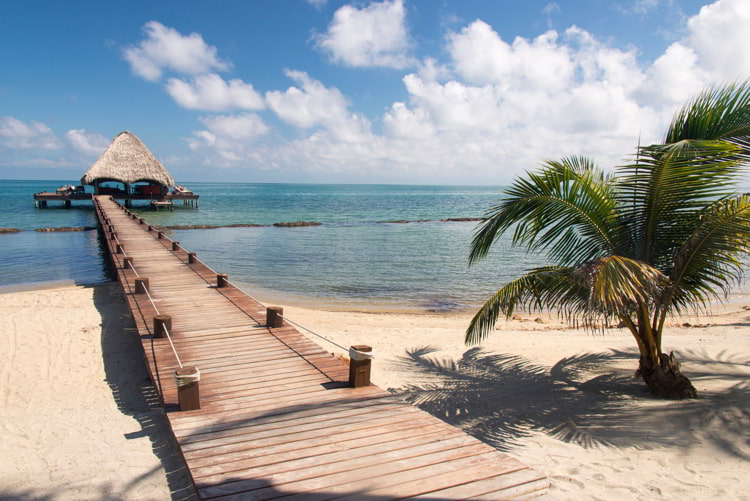 . '
. '
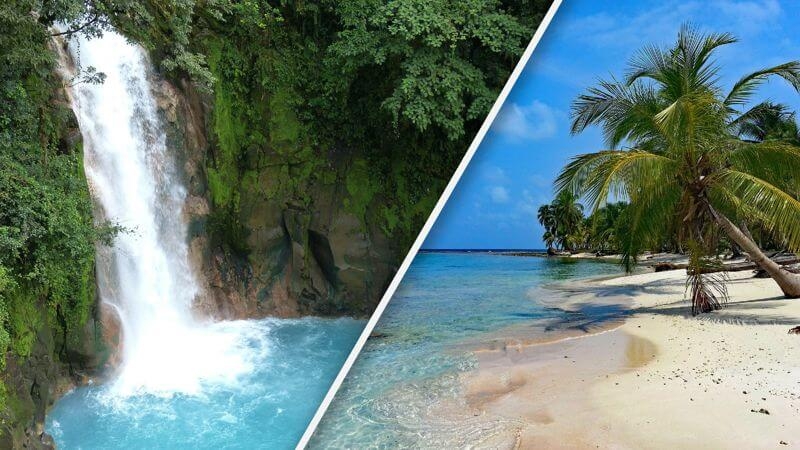 . '
. '
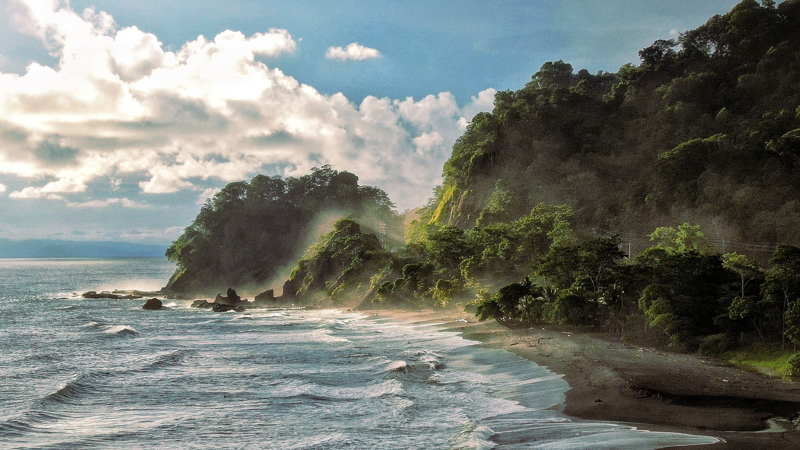 . '
. '
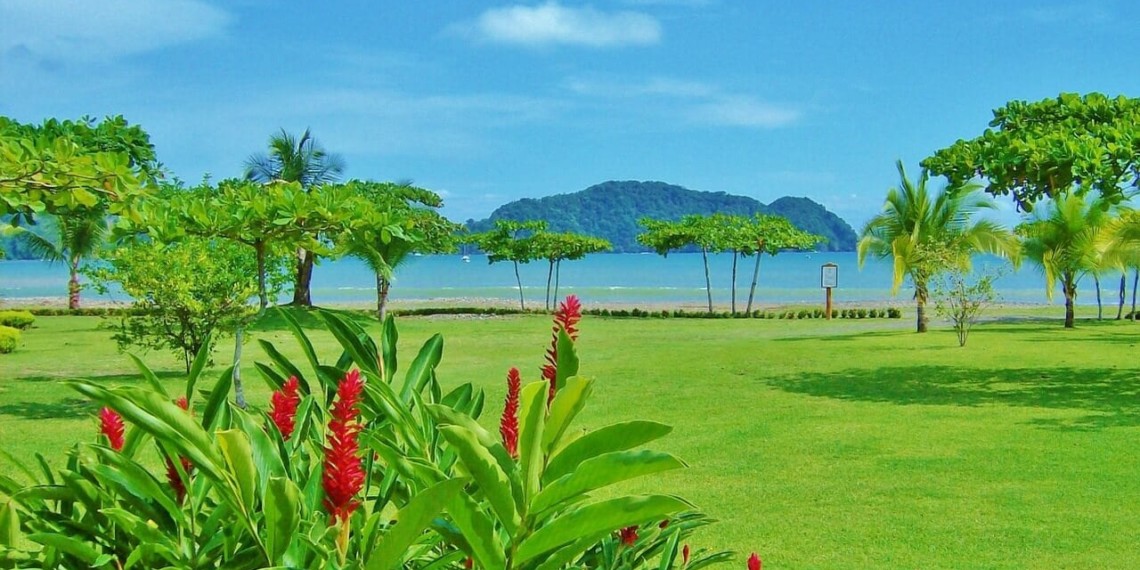 . '
. '


